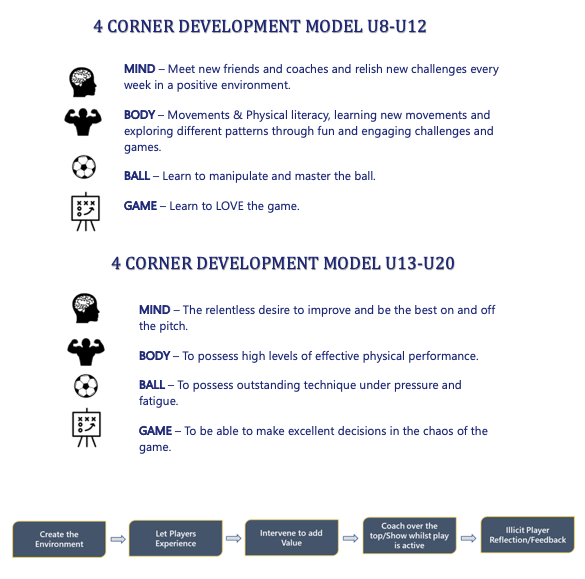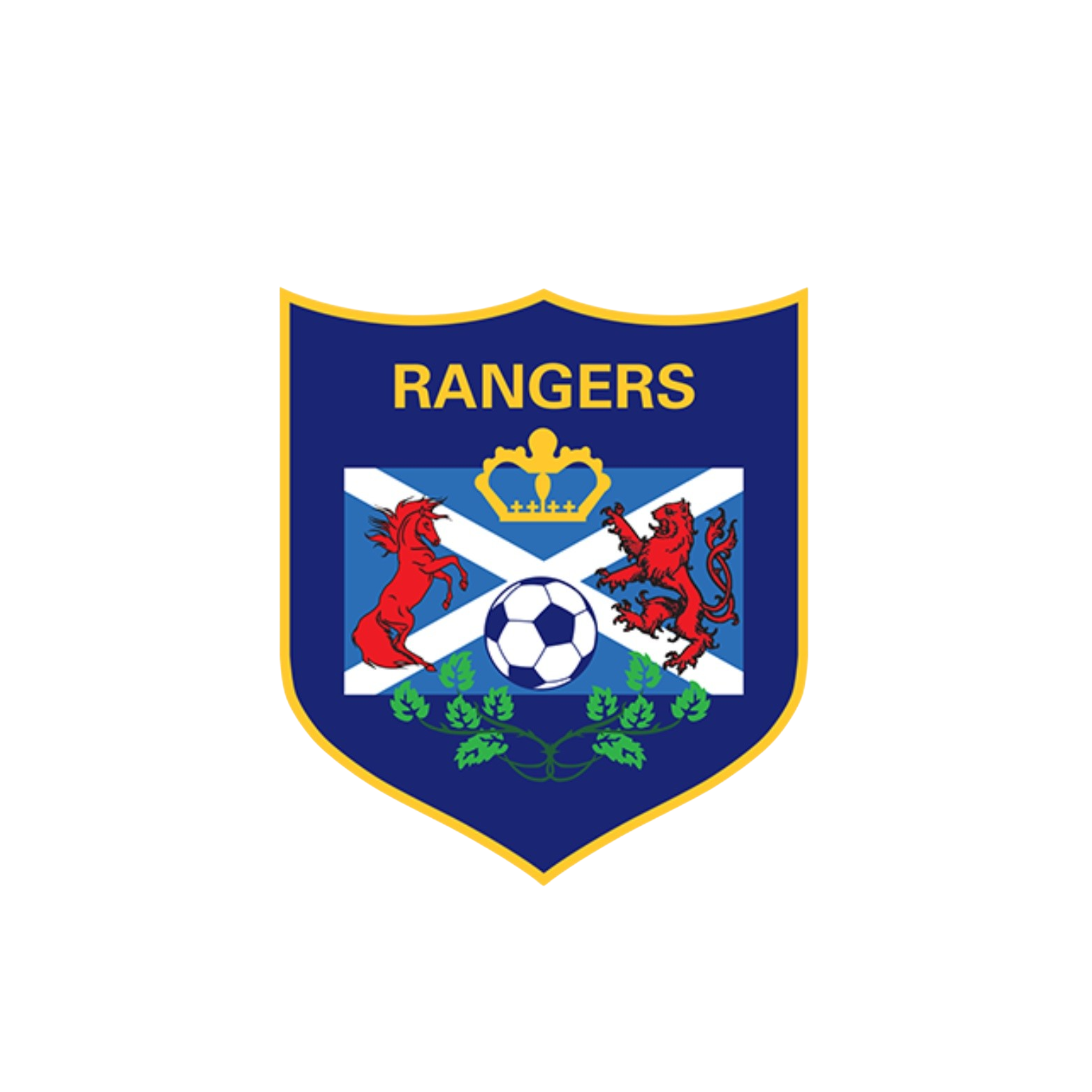Coaches Resources
At Calgary Rangers, we provide all our coaches with the support and resources for them to educate our players using our club methodology and philosophy.
Click on the relevant coaches handbooks for everything you need to know:
Coaching Methodology
Calgary Rangers SC Technical Mission –
WHAT WE BELIEVE: At Rangers, we want to develop intelligent players who have the technical, & tactical skills to pursue the level of soccer they wish. By dominating in all four moments of the game our players will enjoy playing and performing.
When designing our training sessions, we incorporate all 4 Corners of Development and recognize that no corner is more important than another.
At Rangers, our sessions are broken into four practice parts:
- Technical Warm-Up
- Intro-Game
- Activity
- A Final Game.
It is important our players are exposed to a variety of problems as we aim to improve their Tactical IQ.
Calgary Rangers SC Style and Team/Player Identity– HOW WE PLAY: The Rangers style of play is based on dominating the ball, building intelligent attacks and selecting the right moments to progress the play and penetrate the opponent.
Calgary Rangers SC Coaching Methodology– HOW WE TEACH: Our Rangers staff are trained as soccer educators. Our coaches will develop environments where players will need to problem solve, and critically think. We will cultivate a player-centric culture whereby individuals are encouraged to take risks on the field and are taught the concepts of responsibility, humility, and accountability.
We believe in setting expectations and providing clear demonstrations prior to each part of our practice. It is important to then let players experience the practice part and only intervene if we believe it will add value for the learner. We encourage coaches to provide feedback over the top and to show players whilst an exercise is still active. At the end of a practice part, we illicit feedback from the participant to check for collective and individual understanding.

